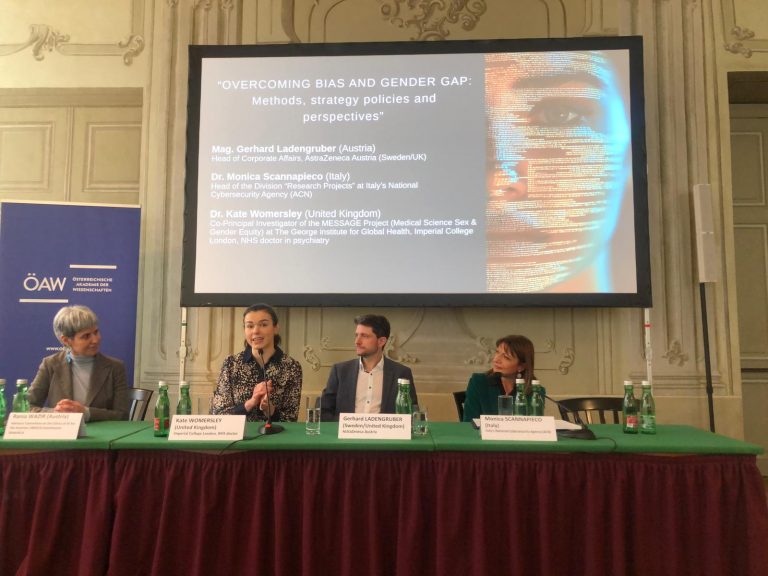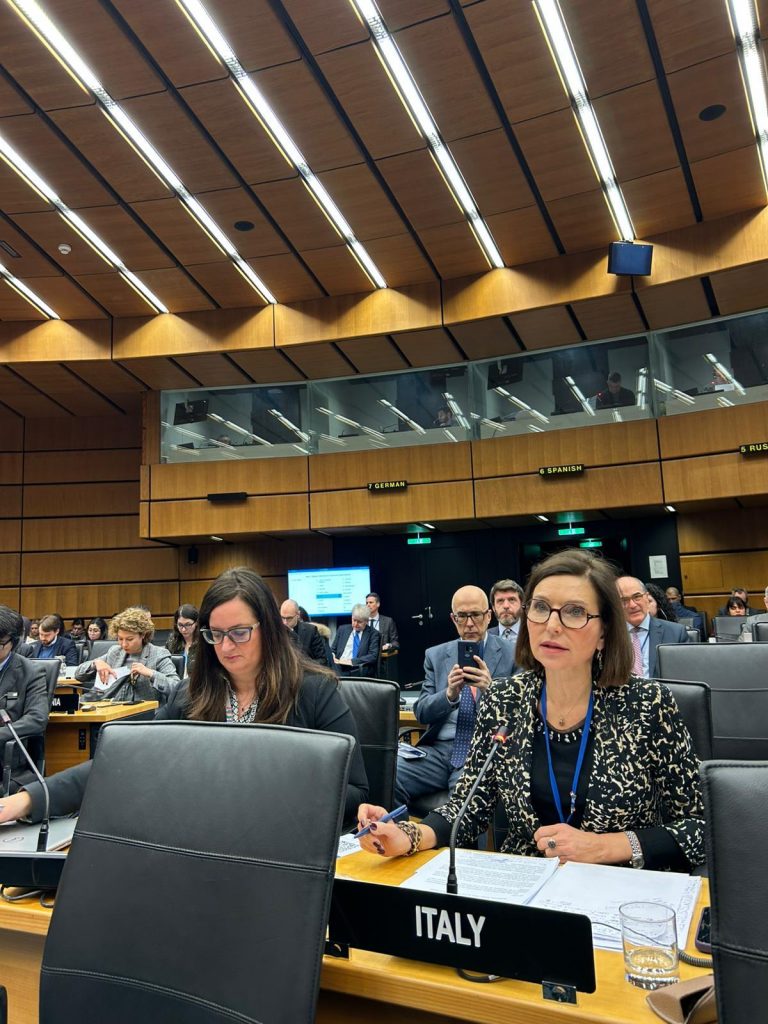Yesterday, on the International Day of Women and Girls in Science, a panel discussion on the gender data gap in biomedical research and the need for more inclusive research policies was held at the Austrian Academy of Sciences in Vienna.
The event, jointly organized by the Embassy of Italy, the Permanent Mission of Italy to the International Organizations in Vienna and the diplomatic missions of Canada, France, Sweden, Switzerland, the Netherlands and the United Kingdom, bore witness to the shared commitment for a greater gender equality in the scientific world, focusing on a highly topical subject: artificial intelligence governance.
In the current context of quick transformation of the healthcare sector through artificial intelligence, it is essential to ensure that research is inclusive and fair. Experts from academia, industry and research shared their insights on the challenges and opportunities provided by AI-based solutions applied to medicine.
Among the panellists, Monica Scannapieco (Italy), head of the “Reserch Projects” Division of the National Cybersecurity Agency, underlined the importance of having inclusive data sets, representative of the entire population, to guarantee fair and effective algorithms. The use of data that do not provide an adequate representation can lead to distortions in results and diagnoses, with particularly serious consequences for women. Historically underrepresented in clinical trials, women are more exposed to the risk of wrong diagnoses and delays in the identification of specific diseases.













